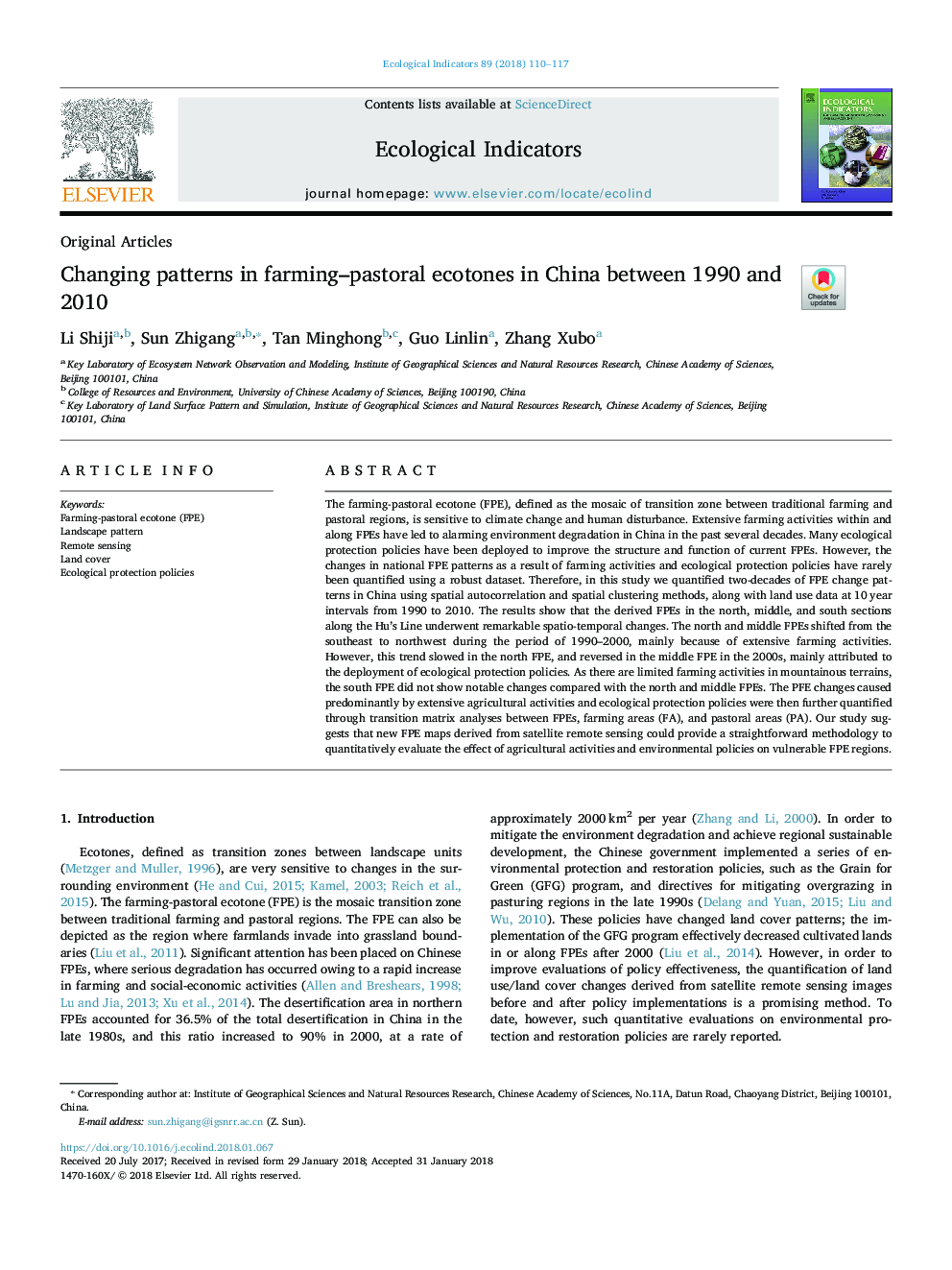| Article ID | Journal | Published Year | Pages | File Type |
|---|---|---|---|---|
| 8845439 | Ecological Indicators | 2018 | 8 Pages |
Abstract
The farming-pastoral ecotone (FPE), defined as the mosaic of transition zone between traditional farming and pastoral regions, is sensitive to climate change and human disturbance. Extensive farming activities within and along FPEs have led to alarming environment degradation in China in the past several decades. Many ecological protection policies have been deployed to improve the structure and function of current FPEs. However, the changes in national FPE patterns as a result of farming activities and ecological protection policies have rarely been quantified using a robust dataset. Therefore, in this study we quantified two-decades of FPE change patterns in China using spatial autocorrelation and spatial clustering methods, along with land use data at 10â¯year intervals from 1990 to 2010. The results show that the derived FPEs in the north, middle, and south sections along the Hu's Line underwent remarkable spatio-temporal changes. The north and middle FPEs shifted from the southeast to northwest during the period of 1990-2000, mainly because of extensive farming activities. However, this trend slowed in the north FPE, and reversed in the middle FPE in the 2000s, mainly attributed to the deployment of ecological protection policies. As there are limited farming activities in mountainous terrains, the south FPE did not show notable changes compared with the north and middle FPEs. The PFE changes caused predominantly by extensive agricultural activities and ecological protection policies were then further quantified through transition matrix analyses between FPEs, farming areas (FA), and pastoral areas (PA). Our study suggests that new FPE maps derived from satellite remote sensing could provide a straightforward methodology to quantitatively evaluate the effect of agricultural activities and environmental policies on vulnerable FPE regions.
Related Topics
Life Sciences
Agricultural and Biological Sciences
Ecology, Evolution, Behavior and Systematics
Authors
Li Shiji, Sun Zhigang, Tan Minghong, Guo Linlin, Zhang Xubo,
